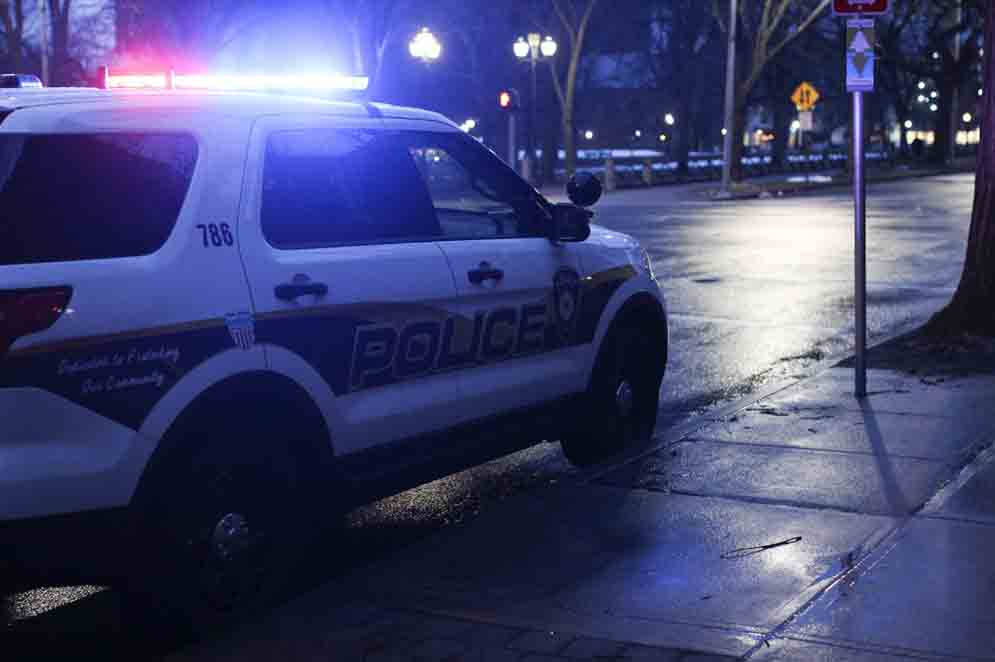
Yale Daily News
Do body cameras actually change a police officer’s behavior while on duty?
Yale political science professor Alexander Coppock addressed this question and discussed his research on body cameras at a talk on Thursday afternoon. Coppock and other researchers conducted a study earlier this year that concluded that police officers’ behavior is not significantly changed after they are given body cameras. The talk was hosted at the Policy Lab, run by the Institution for Social and Political Studies, which offers Yale students a space to conduct policy-related discussions and to engage with policymakers.
Coppock conducted his research in Washington, D.C., studying the city’s police department. Officers across the department were randomly assigned to wear body cameras, Coppock explained, and then compared to other officers in their district who were not assigned cameras. The researchers collected data over the course of a year.
“This is the largest body camera [randomized control trial] study to date,” Coppock said of his study. “It involved 2,200 officers, which is about 10 times bigger than the next biggest RCT with body cameras.”
Coppock and his fellow researchers tracked the number of documented uses of force, including anything from the binding of wrists to violent encounters, as well as the number of civilian complaints about police conduct, according to Coppock. After extensive statistical analysis, Coppock and his peers found that the number of these instances was similar for officers with and without body cameras. The study concluded that expectations that body cameras will change police behavior should be altered.
One reason body cameras might not have as significant an impact on police behavior as many would assume, Coppack said, is that police officers are already highly monitored. He explained that police vehicles are already equipped with GPS tracking devices. Most civilians carry cell phones with cameras and there are cameras almost everywhere nowadays, he added.
In recent years, body camera programs have been implemented across the country, a product of “a series of high-profile, officer-involved shootings … captured in bystander video and shared across social media,” according to Coppock’s study. The paper also noted that 95 percent of large police departments either already have a body-camera program or plans to implement one.
According to Reuters, body cameras cost between $350 and $700, a large expense for police departments.
A crowd of about 40 gathered at The Policy Lab for the event. Many of those in attendance on Thursday were students or faculty members in the Department of Political Science.
Maria J. Hierro, a lecturer in political science, said that she found the topic of body cameras interesting and wanted to learn more about the study, which she believes has important policy implications.
Mike Goldfien GRD ’23, a student in one of Coppock’s courses, has a more personal connection to the event.
“I lived in D.C. for two years, so I was interested to learn about the experiment and its implications,” he said.
The Institution for Social and Political Studies officially launched The Policy Lab on Jan. 23, 2017.
Madison Mahoney | madison.mahoney@yale.edu







